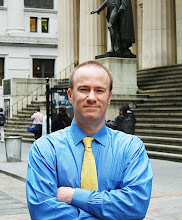
(This is the first of an ongoing RedRockorBust series profiling qualifiers for the 2010 National Handicapping Championship.)
Richard Goodall, 65, is not your garden-variety NHC qualifier. You see, he happens to be one of only 10 people on the planet who have won the whole shebang. That's right, in 2008, Goodall topped a NHC field of 277 to win the big kahuna, and it was no squeaker -- his $272.30 bankroll set an NHC record for largest margin of victory. Goodall punched his ticket for the 2010 NHC via a Santa Anita contest back in March.
Goodall, a former attorney, estimates he has been playing the horses for 50 years, and he has played handicapping contests since their inception, approximately 25 years ago. He spoke to Red Rock or Bust from his Las Vegas home.
Red Rock or Bust: What is your strategy for handicapping contests?
Richard Goodall: I am a longshot player. I'm either very good or very bad. Most times I'll either be on the leaderboard or finish with $0. I rarely finish mid-pack. Finishing 32nd is no better than finishing last.
Every contest has its own rules -- cap or no cap, real money or mythical wagers, and so on. In order to win, you have to have at least one big-priced horse. I remember one contest at the Orleans Casino about three years ago that was all chalk, but that is extremely rare. So somewhere you have to step out of the box.
The only time I'd ever consider playing a favorite is if you think you're ahead in the contest and want to preserve capital. I'll never bet a 2-1 shot in an early race, I'd rather eat the ticket. You have to have the mindset that you're going to win, and you won't win by betting 2-1 horses.
In real-money contests, I'm fairly conservative in that I try to make a 10- or 20-race contest into a 2-race contest. On the last day or in the last race is when you play the horse you want to play, rather than spreading out.
RRB: It sounds like that approach can be linked to turf racing, where jockeys typically try conserve their mount and stay in the hunt before sprinting the last quarter-mile.
RG: Yes, that's a good analogy. The smart thing is to conserve and then make a big push toward the wire.
RRB: What if the horse you like best on a contest card is entered in an early race? Wouldn't you bet big early?
RG: That horse doesn't exist for me. No matter how much I love the horse, if it's not time to love a horse, I won't play the horse big. I will be cognizant that I like a horse more and maybe play $30 rather than $20, but I'm not going all in.
If you make a big score early in a contest, everybody knows their own math as to how they get to where you are. There are no tourists off the street in the big-money contests.
RRB: What is your strategy for mythical-bankroll contests?
RG: In mythical-bankroll contests you always want to save one bullet for the end. Contest strategy can be more important than handicapping. I always try to handicap later races first, always try to find a bailout horse, a 15-1 shot, a 6-1 shot. Whatever it would take to have a chance to win.
RRB: You qualified for the 2010 NHC via a contest at Santa Anita in March. What was your key score or scores?
RG: In the last race a horse was third-choice on the morning line, but my software rated him as the first choice. I put about $1,200 of my $5,000 on him, he won and paid about $12.
RRB: Will you do anything different in the 2010 NHC, or stick with what works?
RG: I'm too old to change. I do think the common advice to take shots in races that are not mandatory and score points in the mandatory races is wrong. That may keep you from being on the bottom but it keeps you from getting to the top. If you can hit longshots in the mandatory races, you can separate yourself.
Also, if you're betting a longshot at Santa Anita or Aqueduct, you can be sure than 40 others have that horse too. Fewer people will have longshots from Tampa, Fairgrounds, or Oaklawn, so a good strategy is to play those tracks.
Around November I start getting ready for the NHC. I try to be all over Tampa and Fairgrounds, I think that gives me an advantage. If you can be a contrarian in any way, you can beat the crowd.
I'm just an OK handicapper. I'm a contest player. I think I understand the makeup of contests better than most players.
RRB: Thank you, Mr. Goodall.
RG: Good luck.

"Just pay me, I'm not working."
ReplyDelete